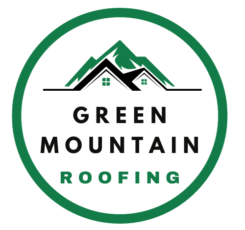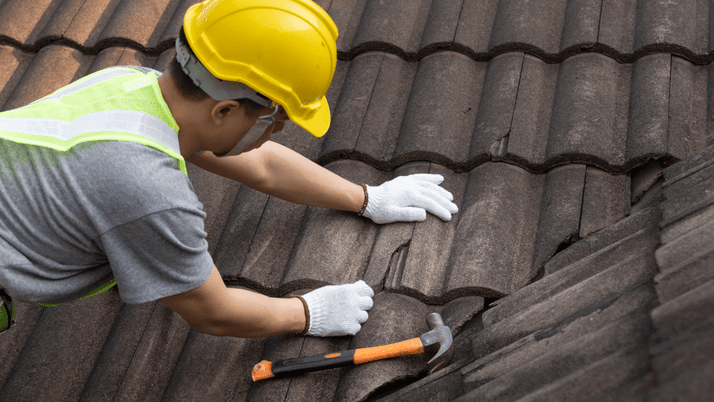Tile roofs are a popular choice for homeowners due to their durability, aesthetic appeal, and ability to withstand a variety of weather conditions. While a tile roof Sonoma County can last up to 50 years or more, they still require periodic maintenance and, occasionally, repairs to prevent more significant issues down the line. Understanding how to identify potential problems, when to seek professional help, and how to conduct minor repairs can help you protect your investment.
Why Tile Roofs Need Repairs
Tile roofs are designed for longevity, but they aren’t entirely maintenance-free. Over time, tiles may experience minor shifts, cracks, or chips, and the underlayment (the waterproof layer beneath the tiles) can wear out. Here are some common reasons why tile roofs may need repair:
Weather Damage
Exposure to harsh sunlight, heavy rain, and high winds can wear down tile surfaces and lead to minor fractures. It’s important to know how to tell if winter weather is damaging your roof so that you can catch these signs of wear and tear early.
Falling Debris
Branches, hail, and other falling objects can chip or crack tiles.
Structural Shifts
Homes naturally settle over time, which can cause tiles to move slightly and sometimes break.
Biological Growth
Moss, algae, and lichen can grow on tile surfaces, especially in humid areas. Over time, this growth can cause damage to both tiles and underlayment if left untreated.
Key Signs Your Tile Roof Needs Repair
It’s essential to recognize early warning signs of damage to avoid expensive repairs. Here are some signs that your tile roof may need professional roofing services near you:
Cracked or Broken Tiles
Visible cracks or chips on tiles are clear indicators that your roof needs repair. Broken tiles can expose the underlayment and allow moisture to seep through.
Water Stains on Ceilings
Interior water stains, especially near the edges of ceilings or on upper floors, often signal a leak in the roof. Water stains are usually a sign of water damage and should be professionally inspected as soon as possible to prevent structural damage.
Moss and Algae Growth
Excessive moss or algae growth can trap moisture, leading to tile damage and underlayment issues.
An Insidious Infiltrator
If your roof is retaining enough moisture to develop moss or algae, there is a decent chance that mold could also be inhabiting your roof. While some small mold patches can be mitigated yourself, mold that is left to fester can seep deep into the pores of your roof, eventually infesting your home. Prolonged mold exposure can lead to allergy symptoms, flu-like symptoms, respiratory infections, or more severe responses.
Loose or Dislodged Tiles
If you notice tiles that appear shifted or out of place, this can expose underlying layers and lead to water penetration.
Sagging Roof Sections
Sagging areas on your roof could indicate rotting wood beneath the tiles, a sign of significant moisture damage that needs immediate attention.
Why the Underlayment Is Key to Roof Health
Tile roofs often owe their durability not just to the tiles themselves, but to the underlayment beneath them. Underlayment serves as a waterproof barrier that protects your home from moisture. Over time, this layer can deteriorate, making it essential to inspect it regularly, especially if you notice broken tiles or signs of moisture damage.
Replacing Your Underlayment
Replacing underlayment involves removing a section of tiles to access the layer beneath. This is a complex process that generally requires professional help, as improper underlayment replacement can lead to leaks and structural issues.
Preventing Future Damage: Regular Maintenance Tips
Preventive maintenance can go a long way in extending the life of your tile roof. Here are some helpful essential maintenance tips to protect your new roof:
Trim Nearby Trees
Branches can scrape against tiles during storms, potentially causing cracks or chips. Keep tree limbs trimmed to prevent this damage.
Clean the Roof Regularly
Removing leaves, dirt, and debris from the surface and gutters can prevent moisture buildup, which can damage tiles over time.
Check for Moss and Algae
If you live in a humid area, apply an anti-fungal treatment to prevent moss and algae growth. Avoid using harsh chemicals, as these can damage tiles.
Conduct Regular Inspections
At least twice a year, inspect your roof for signs of wear or damage. Look for cracks, loose tiles, and biological growth that could harm your roof over time.
When to Call a Professional Roofer
While some tile roof repairs can be handled by homeowners, others require the expertise of a professional, like Green Mountain Roofing. Here are situations when it’s best to call in a roofing expert:
Extensive Tile Damage
If multiple tiles are cracked, chipped, or missing, it’s more efficient (and safer) to have a professional address the repairs.
Underlayment Issues
Replacing underlayment involves tile removal and precise installation, making it a complex task that professionals should handle.
Severe Leaks
If you notice water stains or sagging on your ceilings, there may be a serious leak requiring immediate professional intervention.
Storm Damage
High winds and hail can cause widespread roof damage. A roofing expert can assess the full extent of the damage and recommend the necessary repairs.
The Risks of DIY Repairs
Beyond the obvious dangers of roof repair, like scaling ladders and navigating roof slopes, DIY repairs can potentially cause more damage to your home! Professionals have the training and tools to handle roofing repairs effectively and efficiently. Additionally, roofing companies offer warranties on their work, giving you peace of mind. Don’t risk a DIY repair – call the pros at Green Mountain Roofing!
Tile Roof Specialists Near You – Green Mountain Roofing
At Green Mountain Roofing, we specialize in tile roof repair and maintenance to help homeowners protect their investments. Whether you need a few tiles replaced or an in-depth underlayment assessment, our experienced team is here to help. Contact Green Mountain Roofing or give us a call at (707) 395-5435 to schedule a roof inspection with us today to keep your tile roof in Sonoma County in top condition!

